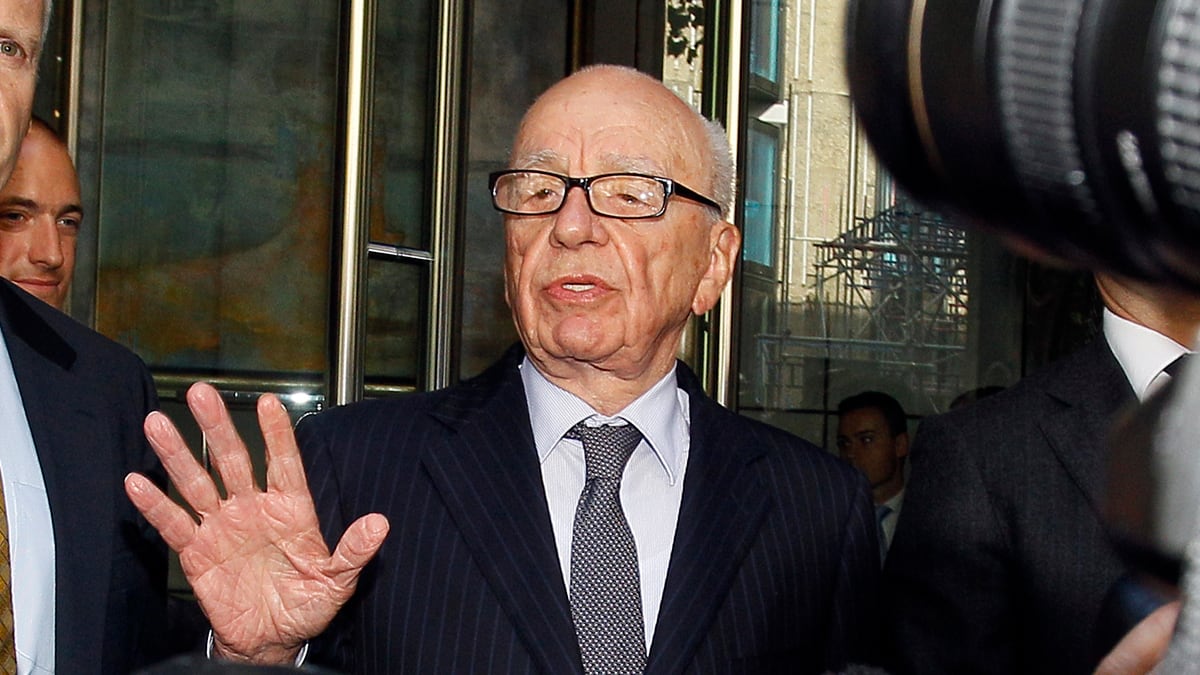During his testimony before the Parliamentary Select Committee on Culture, Media, and Sport, James Murdoch repeatedly referred to News Corp.’s “code of conduct,” setting up the code as the cornerstone of ethics at the company, and potentially a “paragon” for journalists across the globe. His father, too, referred to it in a prepared statement that he was not allowed to read, saying, “Let me be clear in saying: invading people's privacy by listening to their voicemail is wrong. Paying police officers for information is wrong. They are inconsistent with our codes of conduct and neither has any place, in any part of the company I run.”
Indeed, a look at the code of ethics reveals a series of alleged violations of the rules that would make a lesser media mogul blanch: Murdoch père called the hearing his “most humble day,” but remained defiant in the face of some questions and refused to take responsibility for crimes. James Murdoch, under questioning by a member of the committee, seemed unable to describe how employees were informed of and educated about the code. (News Corp. says all employees are sent the code.) But the code is relatively fresh—having last been updated in May of this year. “We have revised this Standards of Business Conduct to make it easier to read and use, and to clearly outline what we should all expect of ourselves as colleagues,” Rupert Murdoch, News Corp.’s CEO and chairman, wrote then—even as the scandal was looming and near to breaking open. “It’s an important responsibility and I’m honored to share it with you.”
So where did employees at the News of the World—and potentially other News Corp. properties—go wrong? It starts just six pages into the 56-page document. One of the responsibilities of all employees, it says, is to:
Promptly raise any concerns about any actual or potential violations of policies with the appropriate people within the Company. People are often reluctant to expose the wrong-doing or potential wrong-doing of others, due to loyalty, fear, or other reasons. It is understandable that no one wants to be the one who “tells.” But we owe a duty to the Company, our stockholders, and our colleagues to make sure that our businesses are conducted in accordance with the highest ethical standards. If we fail or delay to address a concern, matters may become worse, including for the wrong-doer.
The last sentence looks prophetic now, with Les Hinton and Rebekah Brooks—among others—jobless. Rupert Murdoch stated during Tuesday’s hearing that he expected to be informed about any matter that approached crisis level, and added that he had not been informed until relatively recently. But when pressed on whether he believed his underlings might have avoided informing him—perhaps even “due to loyalty, fear, or other reasons”—he demurred.

Another stark passage appears on page 40. The document states:
We know and abide by the News Corporation Global Anti-Bribery and Anti-Corruption Policy.
We don’t offer, give, solicit, or accept bribes or kickbacks, either in cash or in the form of any other thing or service of value.
The document even offers a plain-English description of bribery. Nonetheless, Rebekah Brooks, among others, has admitted that the News of the World made payments to police officers in exchange for tips—a clear violation of the code. During a 2003 hearing before the same Select Committee on Culture, Media, and Sport, Brooks said her paper had paid for information and might do so—“it depends”—in future cases, while her successor, Andy Coulson, said such payments were made “if there is a clear public interest.”
The most damning sentence, however, comes in a section titled “Trust in the Free Market—Our Commitment to the Public.”
We obtain competitive information legally. We do not obtain information about competitors through theft, blackmail, wiretapping, trespassing, or other methods prohibited by law.
Based on reports thus far, News Corp. employees appear to have violated this clause of the code of conduct repeatedly and wantonly, with private investigators working with News Corp. reporters to break into the voicemails of a crowd of celebrities, politicians, royals, and even victims of horrific crimes.
In closing his letter, Rupert Murdoch wrote, “Each of us has the power to influence the way our Company is viewed, simply through the judgments and decisions we each make in the course of an ordinary day.” As he sat through questioning from members of Parliament on Tuesday, the truth of that statement must have been clearer to him than ever.






